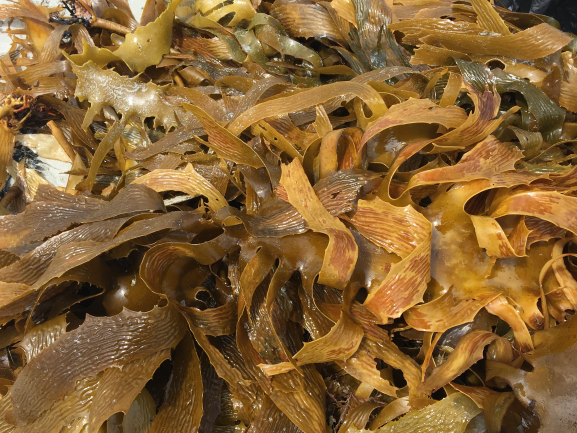
CMBD is a Finalist for the Excellence in Science and Industry Collaboration Award
Congratulations to the Centre for Marine Bioproducts Development (CMBD) – finalist in the category ‘2021 Excellence in Science and Industry Collaboration’, SA Science Excellence + Innovation Awards
The oceans around Australia are abundant with extraordinary resources – from fish and coral to seaweed and algae, crustaceans, sea sponges and sea cucumbers.
The Centre for Marine Bioproducts (CMBD) at Flinders University transforms these sustainable farmed materials into exciting new products, including medicines, biodegradable plastics, bio-inks, nutrition drinks, and eco-friendly fertilizers. Using green chemistry, they develop advanced manufacturing processes to reduce waste, energy use, and the need for harmful chemicals.
Led by Professor Wei Zhang, CMBD is pioneering a new third-generation marine bioproducts industry, which brings together researchers, governments, industries and global partners, allowing scientists to work together across international borders.
CMBD is now embarking on the next stage of their ten-year mission, leading a new $270 million Marine Bioproducts Cooperative Research Centre that expects to generate $8.6 billion for the Australian economy, creating more than 26,000 jobs and developing new products that protect our health and environment.
CMBD would like to acknowledge all past and present members whose efforts have helped to grow and consolidate the Centre’s success.
For this award the entire CMBD team is represented by:
Professor Wei Zhang, the Founding Director of CMBD, is an internationally recognised leader in biotechnology and biodevelopment with a long-term vision of how researchers can work with industry to realise the economic and social value of South Australia’s unique, yet under-explored, biomarine resources. Professor Zhang has an outstanding research track record with research funding, and extensive leadership and mentoring experience.
Professor Chris Franco is a research leader in his own right, with long-standing, successful research and industry collaborations
focused on research and development innovation, education, and commercialisation in marine bioprocesses and bioproducts.
Adjunct Professor Rob Lewis is a member of the CMBD Board of Advisors. Rob has extensive experience in the public and private sectors. He has contributed to national policy and strategy, spanning rural and regional industries, fisheries, and natural resource
management and conservation. Through his important work with the Board (including his 5-year role as Chair), Rob has provided advice on core scientific and industry activities; key research translation strategies, targets, and outputs; and external collaborations that enabled the growth of CMBD’s national and international networks.
Mr Peng Su is a Research Officer in CMBD and has played a key role in developing many industry and government partnerships, including local and international collaborations. Su also helped to establish the SA–Shandong Joint Laboratory, connecting researchers and industry across South Australia and China.
Ms Niki Sperou, a member of CMBD representing the support staff. Sperou communicates CMBD science to a wide audience including the general community, industry, government, and schools. As an artist-in-residence at CMBD for over 10 years, she demystifies science and makes it accessible to all. Sperou’s involvement in CMBD epitomises the centre’s commitment to breaking down the barriers between academics and non-academics by translating their scientific research for the broader community, including industry and government.
In collaboration with their many industry partners, the CMBD team has developed a pathway for research in biodiscovery to translate into commercialisation opportunities and new product development. Across their three broad research themes—marine bioproducts for health and nutrition, advanced marine biomanufacturing, and marine biomaterials- CMBD brings economic, environmental, and health benefits to South Australia.

